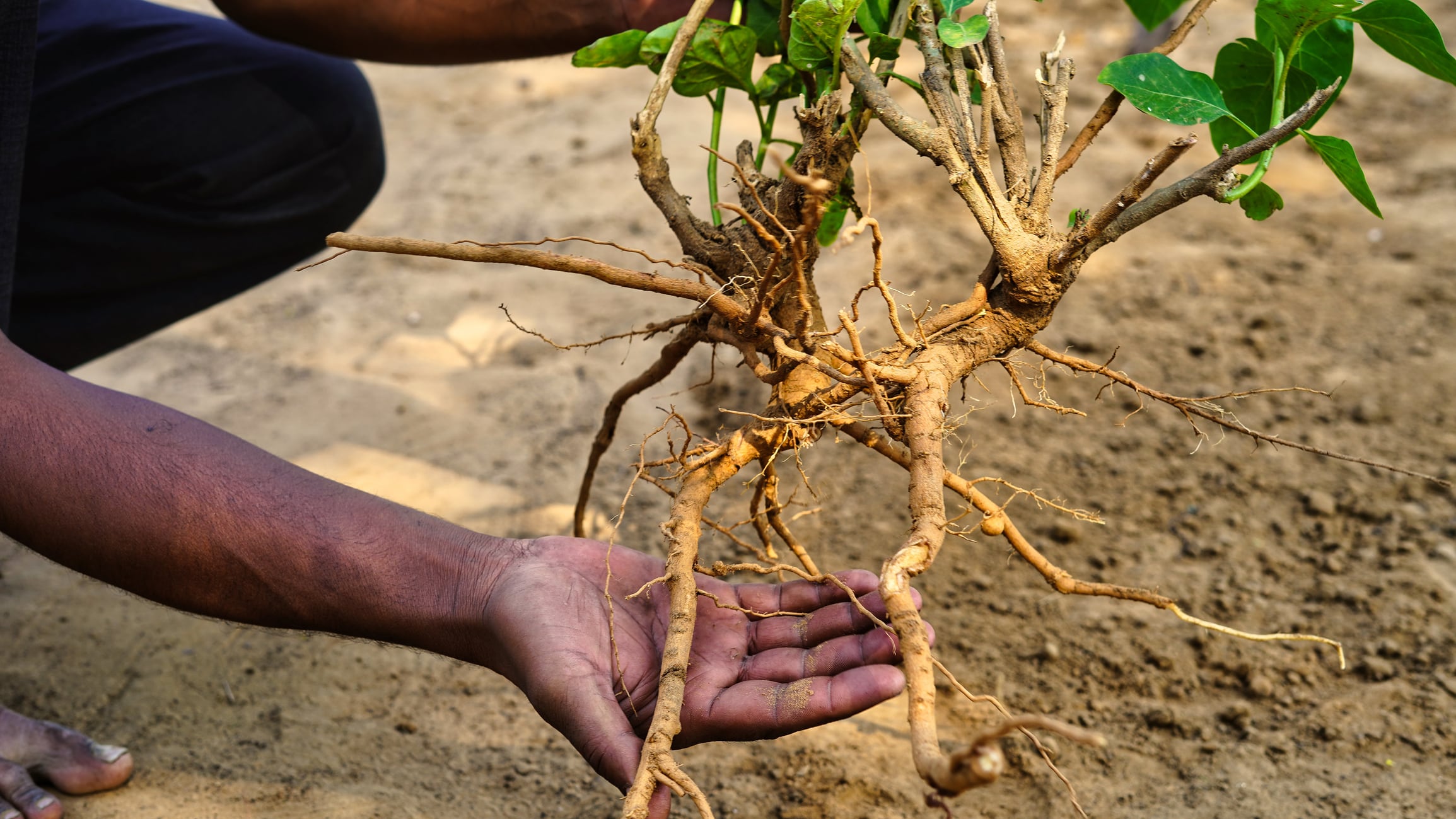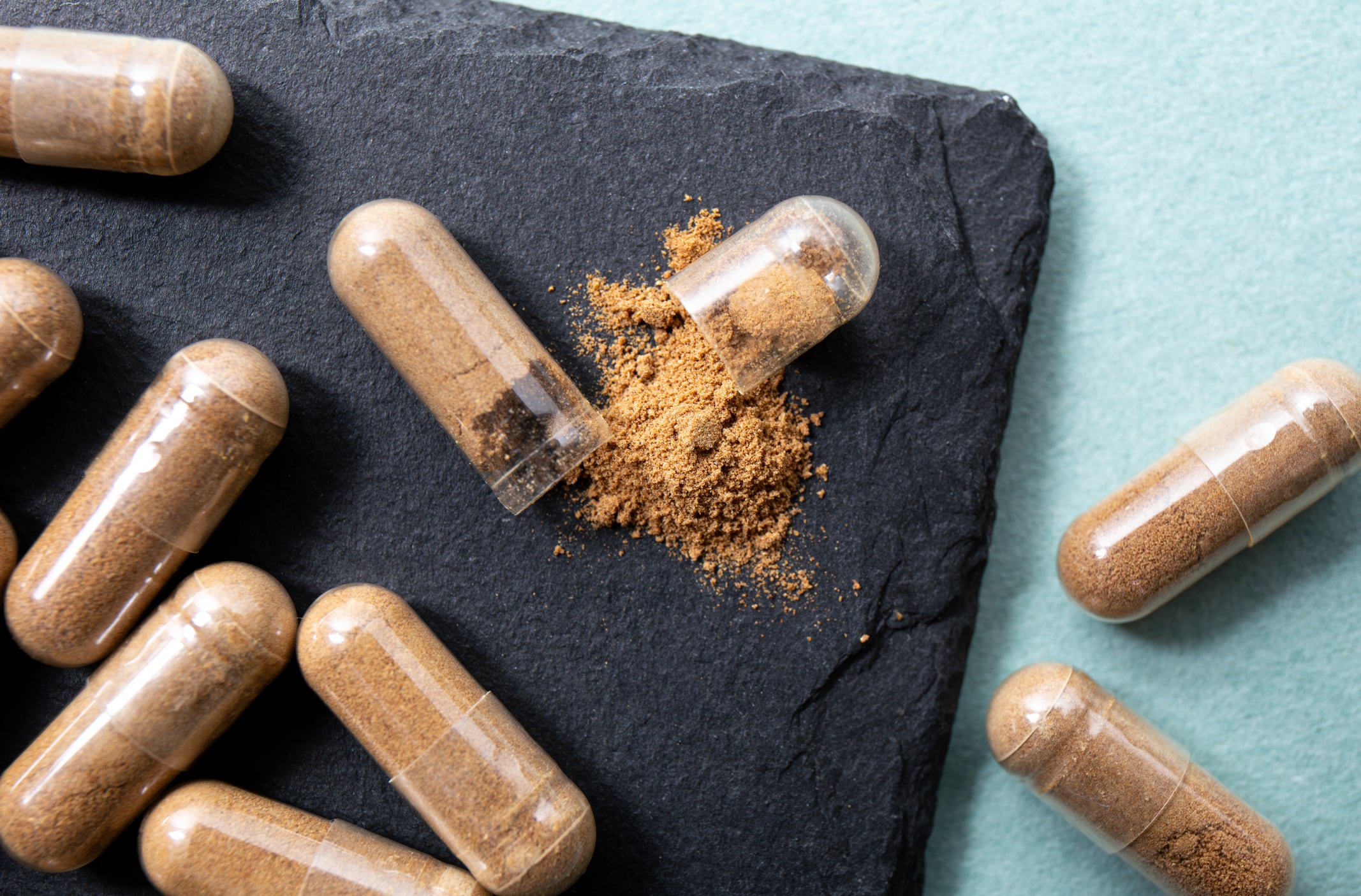OmniActive Health Technologies launched Zenroot in Europe earlier this year after an initial launch in the U.S. The root-only ashwagandha (Withania somnifera) extract is standardized to 1.5% withanolides, with data from a new randomized, double-blind, placebo-controlled trial showing efficacy at a low dose of 125 mg.
“The results of our study indicate that [Zenroot] at a 125-mg dose reduced the subjective perception of stress and resulted in improvements of its associated impairments in sleep quality, severity of occasional anxiety symptoms and mood state,” wrote scientists from Bengaluru Neuro Center, Santosh Hospital, OmniActive Health Technologies and Invitro Research Solutions Private Limited.
Results of the trial, which are published in Advances in Therapy, come hot on the heels of a bioavailability study publihed in the same journal. The bioavailability data indicated that a 125 mg dose of the Zenroot led to significantly higher plasma concentrations of total withanolides, the key bioactives in the ayuervedic herb, compared to two “well-established commercial products with established doses [500 mg and 600 mg] based on multiple human clinical studies”.
A long history of safe use
Ashwagandha (Withania somnifera) has a history of use in ayurvedic medicine that dates back as much as 4,000 years to the teaching of renowned scholar Punarvasu Atreya and in subsequent works that make up the ayurvedic tradition, according to a monograph from the American Herbal Pharmacopoeia (AHP). The name of the herb derives from Sanskrit and means “smells like a horse” in reference to the strong smell of the root which is said to be redolent of horse sweat or urine.
Consumer awareness of and demand for ashwagandha has been growing strongly over the past decade, with the global ashwagandha extract market projected to grow from an estimated US$ 815.7 million in 2025 to US$ 1.79 billion by 2035, at a CAGR of 8.2% (Future Market Insights).
“The ashwagandha category is booming as consumers look for clean label, nonpharmacological solutions to support mood, sleep and stress management,” said Keya Shah, category manager at OmniActive.
“Zenroot’s studies reinforce its ability to deliver a clinically validated, high-performance botanical ingredient that meets these demands in a crowded, fast-growing market. As we continue investing in new science, we see Zenroot as a cornerstone ingredient for formulators seeking to lead in the mental and overall wellness space.”
Study details
The randomized, double-blind, placebo-controlled trial included 90 adults with mild to moderate stress.
Speaking with NutraIngredients at SupplySide West 2024, Dr. Deshanie Rai, vice president of global regulatory and advocacy at OmniActive, stressed that the study included 51% women and 49% men.
“That’s a big deal, given all the hype that’s going on with women’s health,” she said. “The hype is for good reason and actually necessary and overdue, and we wanted to ensure that the outcomes from this study could be relevant, not just for men but for women as well.”
The data showed that the Zenroot group experienced statistically significant decreases in scores on the Perceived Stress Scale (PSS) compared to placebo from day 28 onwards. In addition, every participant in the Zenroot group achieved the minimum clinically important difference (MCID) for stress compared to only 13% in placebo group.
Supporting the PSS results, the researchers also used the Mindfield eSense Skin Response, a specific skin conductance tool which measures how excited or calm a person is.
“We used it as a barometer, so to speak, or as a backup of the perceived stress scale,” Dr. Rai said. “And indeed, what we observed was that through this tool, the data we saw was that it very nicely paralleled the perceived stress scale data.”
However, no significant differences between the groups were recorded for levels of serum cortisol and salivary alpha amylase. Both are biomarkers of stress.
“We observed a significant reduction in anxiety, as measured by BAI [Beck Anxiety Inventory], associated with an improved sleep index measured by PSQI in our study subjects supplemented with [Zenroot],” the researchers wrote.
“This was further supported by MCID being achieved by 91.1% subjects for BAI and PSQI scores in the [Zenroot] group, respectively. Again, these results are consistent with reported studies where ashwagandha root extract showed significant improvements in sleep latency, efficiency, sleep quality and anxiety-related symptoms in subjects suffering from insomnia.”
The researchers called for future studies to explore the potential of this low-dose ashwagandha root extract in chronically stressed adults.
This article included additional reporting by Asia Sherman.
Source: Advances in Therapy, 2025. doi: 10.1007/s12325-025-03327-z. “A New Ashwagandha Formulation (Zenroot) Alleviates Stress and Anxiety Symptoms While Improving Mood and Sleep Quality: A Randomized, Double-Blind, Placebo-Controlled Clinical Study”. Authors: M. Mahadevan, et al.



